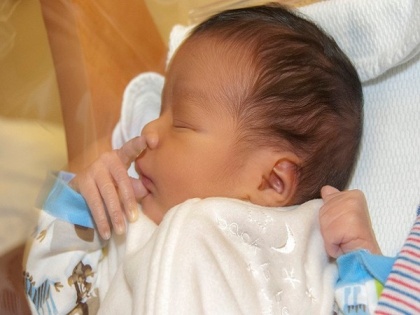Researchers find better protective care for infants in neonatal care unit
By ANI | Published: January 2, 2020 10:15 AM2020-01-02T10:15:06+5:302020-01-02T13:16:16+5:30
A team of researchers has reported the development of a new strategy for reducing the chances of protection of babies from parental infections.

Researchers find better protective care for infants in neonatal care unit
A team of researchers has reported the development of a new strategy for reducing the chances of protection of babies from parental infections.
The study was published in the journal of the American Medical Association.
One of the most deadly microbial scourges present in the hospitals is Staphylococcus aureus.
"Traditional procedures for preventing hospital-acquired Staph infections in the NICU have primarily focused on keeping staff and facilities as sterile as possible. Our study is among the first to focus on parents as a source of the bacteria and then test the effectiveness of an intervention to combat the problem," said Aaron Milstone who led the research.
In the neonatal intensive care unit (NICU) of hospitals, infections caused by S. aureus do not only threaten the survival of a sick or premature infant but also threatens their neurological development.
The researchers used a simple regimen for parents of infants to follow during the period when their children were at intensive care for reducing the spread of S. aureus.
The preventive measure included of application of an antibiotic ointment into the nose and skin cleansing through a wipe containing 2 per cent chlorhexidine gluconate which is an antiseptic used for removing surfaced bacteria around the site of surgery from patient's skin before the operation.
"These results from our preliminary trial indicate that treatment with intranasal mupirocin and chlorhexidine wipes may significantly reduce the number of infants in the NICU who will get S. aureus from contact with a parent," said Milstone.
"It is our hope that one day this technique can be combined with personal cleanliness for medical staff and environmental safety protocols for facilities to provide a stronger defense against NICU-acquired infections," Milstone added.
( With inputs from ANI )
Open in app